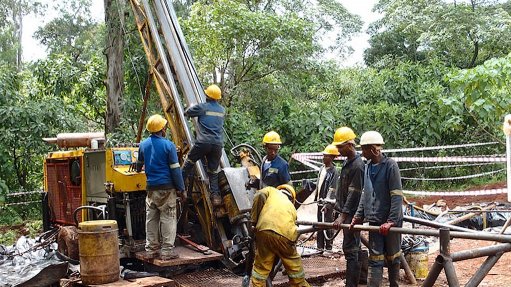
JOHANNESBURG (miningweekly.com) – Ethiopia’s Ministry of Mines has brought an end to London-listed Nyota Minerals’ plans to conduct alluvial mining along parts of the Abay river and its tributaries that would be flooded for the construction of the Grand Ethiopian Renaissance Dam (GERD).
Nyota told shareholders in a statement on Tuesday that the Ministry had decided against issuing any mining licences for alluvial mining along parts of the river and its tributaries as the success of the new dam and its intended transformation of the Ethiopian economy was critically important to the country’s national interest.
It further noted that the risk of any negative impacts arising from any mining activities outweighed the potential economic gains from gold royalties and taxes generated before flooding occurred.
In 2011, Ethiopia announced plans to build four large hydropower dams, including the GERD, along the Nile river. The GERD, on which construction has started, is the biggest of the four dams and is expected to flood 1 680 km2 of land. The 145-m-high and 1 708-m-long dam, being built at a cost of about $4.8-billion, is expected to hold 70-billion cubic metres of water and produce up to 6 000 MW of power. The project is set for completion in 2017.
Egypt, which is highly reliant on the Nile river for its water supply is also opposed to the construction of the dam, owing to water security concerns.
Nyota highlighted that the Ministry had indicated that its decision not to approve the application for a mining licence – submitted by Nyota subsidiary Towchester Investment Company in April last year ¬– was in “no way” a reflection of the application or the applicant.
The exploration company pointed out that the decision came as a “surprise”, but said it would not appeal the decision as this would be “a nonproductive use of resources” owing to what it perceived as a “negligible chance of success”.
Further, although its Brantham and Towchester exploration licences had been renewed, the Ethiopian government had imposed an exclusion zone around the area to be flooded by the GERD.
This resulted in the Towchester exploration licence renewal area being significantly reduced from 458 km2 to 48 km2 and the Brantham licence area from 1 002 km2 to 717 km2.
Nyota noted that it would conduct a strategic review of activities and opportunities in Ethiopia.
“Our board continues to assess new opportunities for Nyota outside of Ethiopia,” the company added.